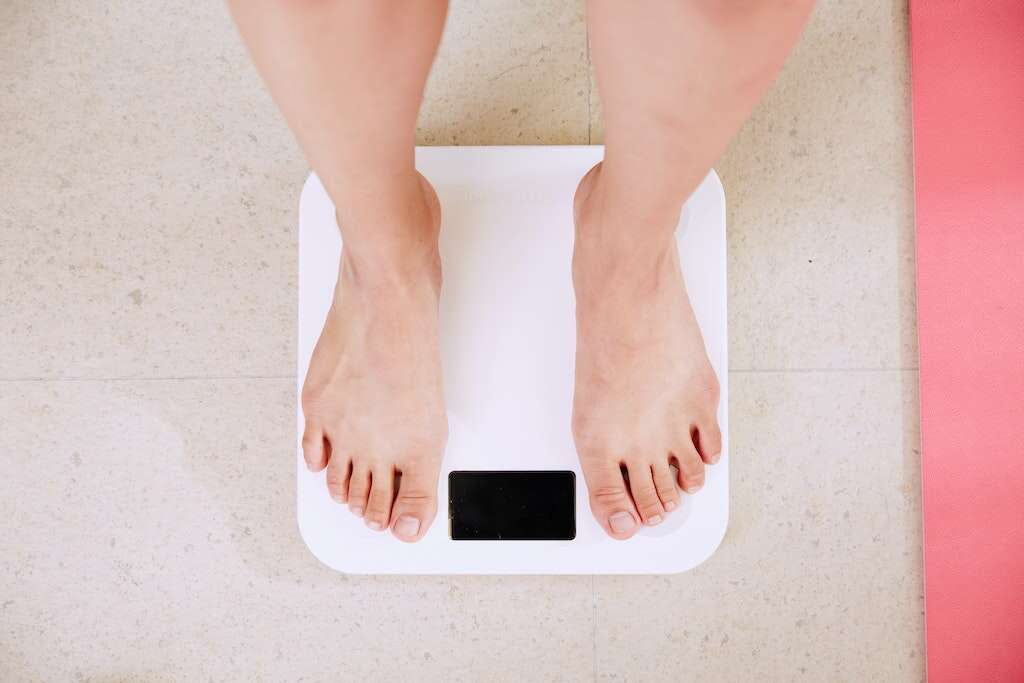Celiac Disease Causes
 Article Sources
Article Sources
- 1. Celiac Disease | Gluten Intolerance. _MedlinePlus_, U.S. National Library of Medicine, 3 Mar. 2021, medlineplus.gov/celiacdisease.html.
- 2. 'Symptoms of Celiac Disease.' _Celiac Disease Foundation_, Celiac Disease Foundation, celiac.org/about-celiac-disease/symptoms-of-celiac-disease/.
- 3. 'Symptoms & Causes of Celiac Disease.' _National Institute of Diabetes and Digestive and Kidney Diseases_, U.S. Department of Health and Human Services, 1 Oct. 2020, www.niddk.nih.gov/health-information/digestive-diseases/celiac-disease/symptoms-causes.
- 4. 'Nausea and Vomiting Mark Gluten Exposure in Celiac Disease.' _Celiac Disease Foundation_, Celiac Disease Foundation, celiac.org/glutenexposuremarkers/.
- 5. Kristin Kirkpatrick, MS. 'The Surprising Truth About Gluten-Free Food and Weight Loss.' _Health Essentials from Cleveland Clinic_, Health Essentials from Cleveland Clinic, 22 Dec. 2020, health.clevelandclinic.org/the-surprising-truth-about-gluten-free-food-and-weight-loss/.
- 6. Lauret, Eugenia, and Luis Rodrigo. 'Celiac disease and autoimmune-associated conditions.' _BioMed research international_ vol. 2013 (2013): 12758 9: doi:10.1155/2013/127589
- 7. 'Celiac Disease and Lactose Intolerance.' _Beyond Celiac_, 9 Feb. 2021, www.beyondceliac.org/celiac-disease/related-conditions/lactose-intolerance/.
- 8. Niederhofer, Helmut. 'Association of attention-deficit/hyperactivity disorder and celiac disease: a brief report.' _The primary care companion for CNS disorders_ vol. 13,3 (2011): PCC.10br0110 4: doi:10.4088/PCC.10br01104
Celiac disease is an autoimmune disease where those with it are unable to eat gluten without damage to their small intestine. The damage is caused by the immune system, which attacks the body when food or beverages containing gluten are consumed.
Celiac disease has over 200 symptoms, which can make diagnosis a difficult task. Symptoms can occur all over the body and may also present themselves in a psychological manner, such as mood swings and irritability, which is one of the most common symptoms in children.1Celiac Disease | Gluten Intolerance. MedlinePlus, U.S. National Library of Medicine, 3 Mar. 2021, medlineplus.gov/celiacdisease.html. Diagnosis often requires a piece of the small intestine (a biopsy), as the blood test can read negative.
1. Genes
There are only two confirmed causes of celiac disease. The first and most common cause is genetics. It almost always occurs in people with the gene variants DQ2 and DQ8, which help form proteins in the body. However, having these variants isn’t anything close to a guarantee people will get the disease, as only 3% of those with these variants will develop the disease.3‘Symptoms & Causes of Celiac Disease.’ National Institute of Diabetes and Digestive and Kidney Diseases, U.S. Department of Health and Human Services, 1 Oct. 2020, www.niddk.nih.gov/health-information/digestive-diseases/celiac-disease/symptoms-causes.
Still, people who don’t have these variants are much less likely to develop celiac disease at any point in their lives. There may be other genes that contribute to the likelihood of developing the autoimmune disease, but studies are ongoing.
2. Eating Gluten
Curiously enough, eating gluten can lead to the development of celiac disease. Studies show that eating more gluten early in life can put those without the previously mentioned gene variants at a higher risk of developing the disorder.3‘Symptoms & Causes of Celiac Disease.’ National Institute of Diabetes and Digestive and Kidney Diseases, U.S. Department of Health and Human Services, 1 Oct. 2020, www.niddk.nih.gov/health-information/digestive-diseases/celiac-disease/symptoms-causes.
Other causes of celiac disease may include certain infections of the body and digestive tract, as well as changes to the body’s microbiome, which includes all the gut flora that assist in the body’s digestive process. However, these causes have not been confirmed as of yet.

3. Abdominal Bloating and Pain
As mentioned earlier, there are over 200 documented symptoms of celiac disease. Abdominal bloating and pain are some of the most common symptoms and are often accompanied by gas and stomach-churning.2‘Symptoms of Celiac Disease.’ Celiac Disease Foundation, Celiac Disease Foundation, celiac.org/about-celiac-disease/symptoms-of-celiac-disease/. Pain can be minor to severe and may last for several hours, but usually doesn’t last any longer than that.
Symptoms of this kind typically occur within two hours of the patient consuming gluten, which is must faster than medical professionals previously thought.4‘Nausea and Vomiting Mark Gluten Exposure in Celiac Disease.’ Celiac Disease Foundation, Celiac Disease Foundation, celiac.org/glutenexposuremarkers/.
4. Weight Loss
Weight loss can be a symptom of celiac disease that leads to more long-term issues like fatigue and anemia. It is often due to the patient experiencing a loss of appetite due to digestive issues and upset stomachs, as well as struggles with constant trips to the restroom.2‘Symptoms of Celiac Disease.’ Celiac Disease Foundation, Celiac Disease Foundation, celiac.org/about-celiac-disease/symptoms-of-celiac-disease/.
Weight loss is usually one of the first symptoms to disappear once a gluten-free lifestyle is adopted, as symptoms that interrupt eating disappear. However, weight gain can also occur, as gluten-free diets contain more sugar.5Kristin Kirkpatrick, MS. ‘The Surprising Truth About Gluten-Free Food and Weight Loss.’ Health Essentials from Cleveland Clinic, Health Essentials from Cleveland Clinic, 22 Dec. 2020, health.clevelandclinic.org/the-surprising-truth-about-gluten-free-food-and-weight-loss/.

5. Enamel Issues
Celiac disease in children can lead to issues with tooth enamel developing properly. This can cause other dental issues down the road, which is why early recognition of celiac disease is paramount to preventing future medical issues.2‘Symptoms of Celiac Disease.’ Celiac Disease Foundation, Celiac Disease Foundation, celiac.org/about-celiac-disease/symptoms-of-celiac-disease/.
The later celiac disease is detected in life, the more likely it is patients will develop another autoimmune disorder.6Lauret, Eugenia, and Luis Rodrigo. ‘Celiac disease and autoimmune-associated conditions.’ BioMed research international vol. 2013 (2013): 12758 9: doi:10.1155/2013/127589 The best chance to avoid the development of further issues is to implement a gluten-free diet during a child’s early years, preferably before the age of 10.
6. Irritability and Behavioral Issues
One of the most common symptoms in children is irritability, which may be caused due to the child experiencing abdominal pain or digestive issues that they don’t understand.1Celiac Disease | Gluten Intolerance. MedlinePlus, U.S. National Library of Medicine, 3 Mar. 2021, medlineplus.gov/celiacdisease.html. This symptom isn’t specific to children, however.
Adults can experience a range of behavioral symptoms, which can include irritability, mood swings, depression, and even suicidal thoughts. These mood swings can range in intensity and regularity depending on how often gluten is consumed. Usually, symptoms will vanish within a few days of adopting a gluten-free diet.3‘Symptoms & Causes of Celiac Disease.’ National Institute of Diabetes and Digestive and Kidney Diseases, U.S. Department of Health and Human Services, 1 Oct. 2020, www.niddk.nih.gov/health-information/digestive-diseases/celiac-disease/symptoms-causes.

7. Lactose Intolerance
Unfortunately for individuals with celiac disease, lactose intolerance can develop due to celiac disease. The intolerance occurs after damage has been inflicted on the individual’s small intestine, and is usually temporary.
Usually, lactose intolerance doesn’t occur unless the individual didn’t adopt a gluten-free diet until later in life, meaning decades of damage is required for it to develop. One study showed that many people with celiac disease don’t begin treating their illness until experiencing lactose intolerance.7‘Celiac Disease and Lactose Intolerance.’ Beyond Celiac, 9 Feb. 2021, www.beyondceliac.org/celiac-disease/related-conditions/lactose-intolerance/.
8. Stool Issues
Individuals with celiac disease will often experience digestive issues, as well as problems expelling waste. Stool issues can include fatty, loose, or smelly stool deposits. Sufferers may have to use the bathroom several times a day and are often unable to fully digest foods.2‘Symptoms of Celiac Disease.’ Celiac Disease Foundation, Celiac Disease Foundation, celiac.org/about-celiac-disease/symptoms-of-celiac-disease/.
These stool problems are usually resolved shortly after the incorporation of a gluten-free diet. However, they are also a symptom that is easily missed and may not occur regularly, making it a poor sign of celiac disease if experienced alone.

9. Growth Deficiencies
If left untreated during childhood, one major symptom of celiac disease is growth problems. These can include a short stature, weak bones and poor bone growth, and problems advancing through the stages of puberty. This can result in a lack of facial hair, muscle development, and poor sexual health, or a reduction in sexual maturity.
While usually not too incredibly severe, these symptoms are particularly troubling in how easy it is to prevent them.
10. Attention Deficit Hyperactivity Disorder (ADHD)
There is a startling amount of cases and studies that link celiac disease and the development of ADHD. Even more startling, studies have shown that individuals with both conditions who adopted a gluten-free lifestyle experienced a marked improvement in their ADHD symptoms.8Niederhofer, Helmut. ‘Association of attention-deficit/hyperactivity disorder and celiac disease: a brief report.’ The primary care companion for CNS disorders vol. 13,3 (2011): PCC.10br0110 4: doi:10.4088/PCC.10br01104
This improvement was also clinically proven, with subjects taking part in focus and attention tests before and after the experiment. Their results after initiating a gluten-free diet showed positive changes.







